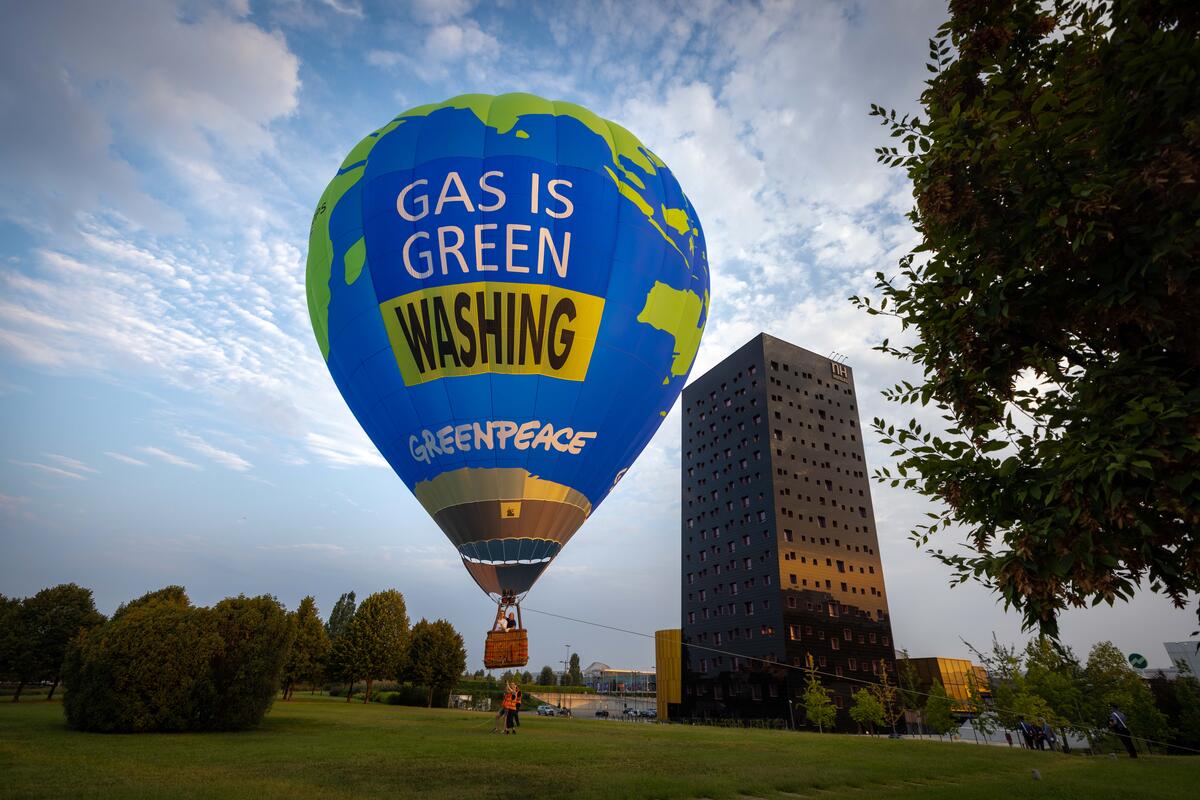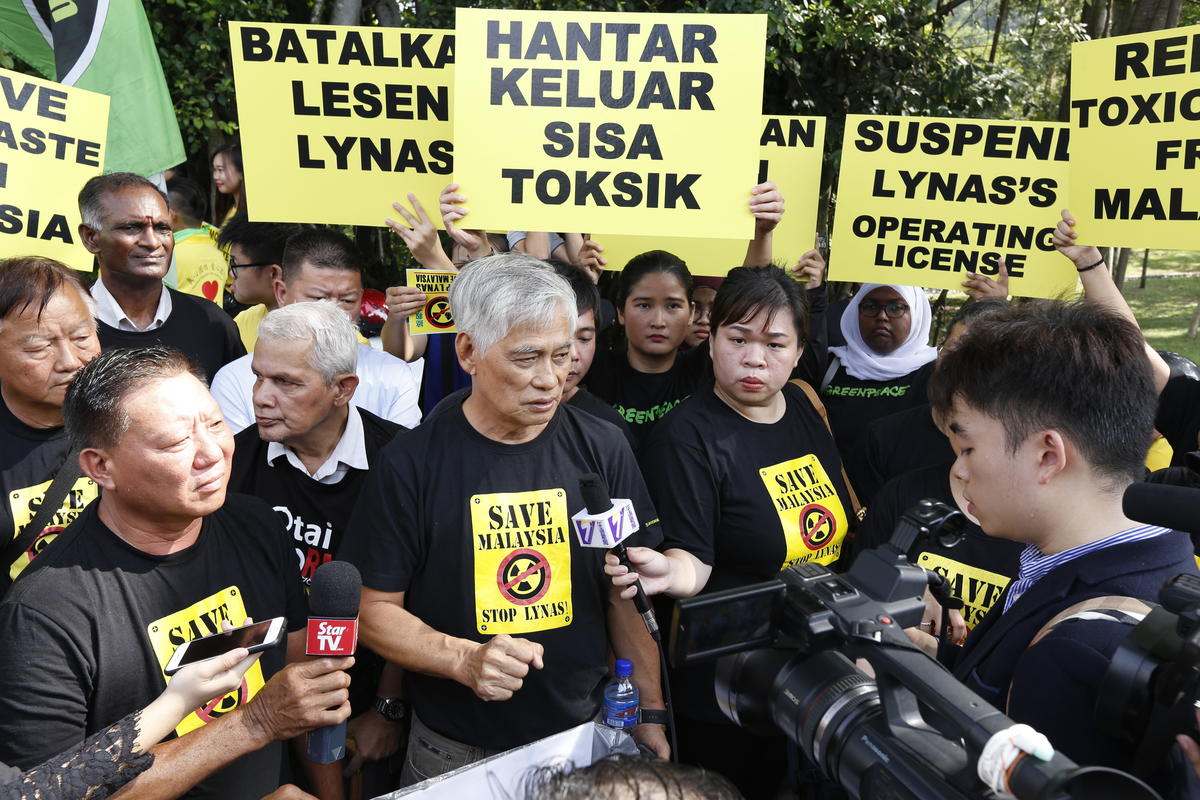KUALA LUMPUR, 21 November 2025 — Greenpeace Malaysia is deeply concerned about the Perak River turning bright blue and the subsequent suspension of mining operations by mining companies. Initial findings reported that radiation levels at the waste site reached 13 times [1] above the permitted limit, raising serious questions about environmental safety, regulatory oversight, and the integrity of rare-earth and tin mining practices in Malaysia.
The decision to halt operations is necessary but it is only a first step. The suspension must be accompanied by full transparency and independent investigation. We call for:
1. An independent, transparent investigation
The government must convene an expert panel free of corporate influence to determine:
- the chemical cause of the river’s blue discoloration,
- the source of radiation and waste mismanagement, and
- whether operators complied with their Environmental Impact Assessment (EIA) obligations.
All findings must be made publicly available to ensure accountability and public confidence.
2. Immediate community protection and river clean-up
Authorities must urgently assess water quality downstream, provide safe water if needed, and ensure that companies bear the full cost of remediation under the polluter-pays principle.
3. Stronger mining regulation
This incident highlights systemic weaknesses. Malaysia urgently needs stricter controls on rare-earth and tin mining, real-time water monitoring requirements, tougher penalties for violations, and transparent reporting mechanisms to restore public trust.
4. Prioritising environmental and community rights
Communities relying on the river must not be left to deal with the consequences alone. They deserve clear information, health protection, and a role in decisions about land use and remediation.
Greenpeace Malaysia Campaign Lead, Heng Kiah Chun said:
The expansion of the mining industry must never come at the cost of poisoned rivers, unsafe radiation levels, and erosion of public confidence, health and safety. A clean environment is not negotiable.”
In June 2025, Greenpeace launched the report Minerals for Energy Transition: Greenpeace’s Guiding Principles [2], highlighting that mining will continue to pose significant risks to ecosystems, Indigenous Peoples, and local communities (IPLCs). And mining must not occur within no-go zones and its environmental impacts must be minimised, with companies acting responsibly and respecting human rights.
Incidents such as this stresses the importance of recognising and implementing the recent ASEAN declaration on environmental rights as more than guiding principles, but enforceable by law in Malaysia.
Greenpeace Malaysia stands ready to support independent monitoring, community engagement, and policy reform to prevent such incidents from recurring.
– ENDS –
Sources:
[1]https://www.reuters.com/sustainability/climate-energy/malaysia-suspends-rare-earths-tin-mining-operations-after-river-water-turns-blue-2025-11-20/
[2]https://www.greenpeace.org/international/publication/75188/minerals-for-energy-transition-greenpeaces-guiding-principles/



